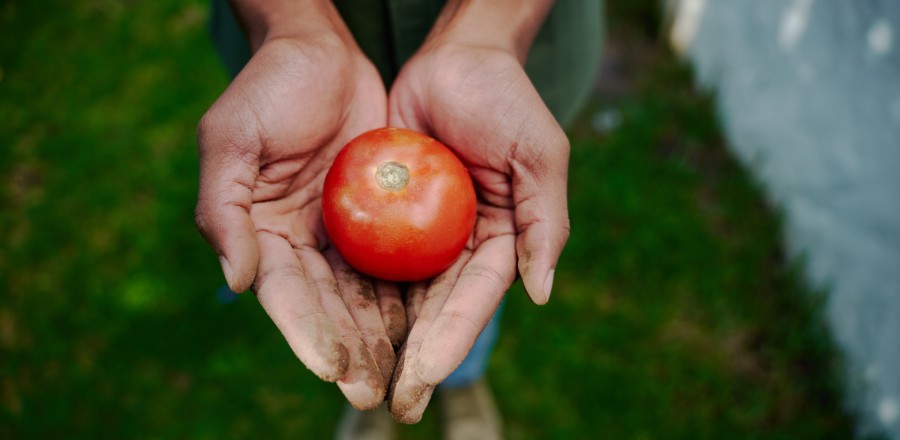African agriculture breakthrough

Glasgow Caledonian University has secured Knowledge Transfer Partnership (KTP) funding from Innovate UK, paving the path for revolutionary advancements in African agriculture.
The focal point of this collaboration is aimed at revolutionising drip irrigation techniques for tomato cultivation in Ghana. Tomatoes stand as Ghana's premier agricultural product and a cornerstone of its economy, but their growth faces an existential threat from climate change-induced droughts.
At the helm of this transformative project is Principal Investigator Dr Sheng Chen from the Department of Mechanical Engineering, supported by Co-Investigators Professor Hadi Larijani and Dr Salaheddin Hosseinzadeh, experts in networks and cybersecurity respectively.
The researchers propose an enhanced drip-irrigation scheme leveraging cutting-edge computational fluid dynamics (CFD), Internet of Things (IoT), and machine learning technologies. This pioneering approach promises not only to mitigate the impact of drought but also to ensure the sustainability and resilience of Ghana's tomato crops.
By analysing data on soil moisture, weather patterns and crop needs, it is hoped the researchers’ system will accurately predict and adjust irrigation schedules in real-time. This precision irrigation approach minimises water wastage, mitigates the impact of drought, and promotes sustainable agricultural practices. This will help ensure higher yields and greater resilience in the face of environmental challenges.
Partnering with the University of Development Studies Ghana and IWAD Ghana Ltd (Integrated Water and Agricultural Development), the researchers will be stationed in Ghana, working to bring this vision to fruition over the project's two-year duration.
Unlike conventional partnerships, this KTP is fully funded, thanks to the support of Innovate UK. This means that the industrial partner, IWAD Ghana Ltd, can fully commit to the project's success without financial constraints.
Dr Chen said: “We are honoured to lead the charge in revolutionising African agriculture. Our collaborative efforts hold the promise of not only transforming tomato cultivation in Ghana but also empowering millions of livelihoods.”
